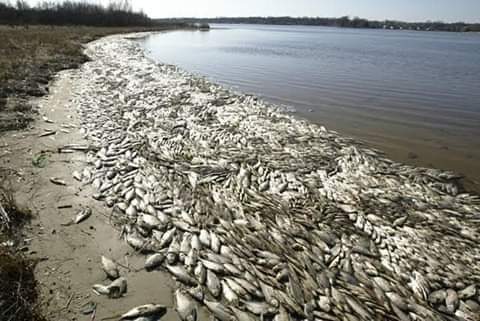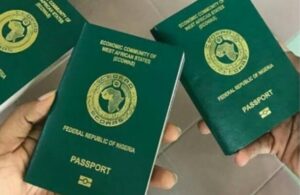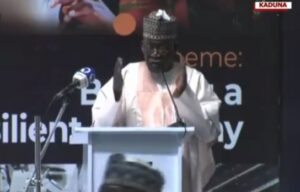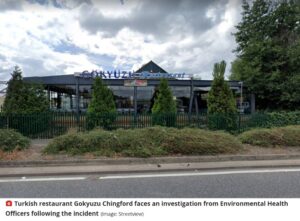
The hordes of fishes and the bank of Bonny Waterways
By Dupe Olaoye-Osinkolu
Communities in Rivers State have set up a fact-finding committee to unravel the mystery of continued drifting ashore of dead fishes along their shorelines.
The communities are seeking urgent government intervention as their people keep harvesting the fishes for consumption and commercial purposes, against the leaders advice.
They feared large scale food poisoning and a fresh pandemic, hence calling for urgent help.
Below is the statement issued by the committee.
“FINDINGS OF PRELIMINARY INVESTIGATION INTO THE INCIDENCE OF DEAD FISHES ON BONNY WATERWAYS
“BRIEF
Upon learning of the incidence of the dead fishes on the shores and waterways of Bonny Local Government Area, a volunteer team of Bonny indigenes took it upon themselves to go probe the reality, immediate and remote causes, impact, and possible remedy to the situation. Below is the report of our findings in the course of a two day exercise.”
TEAM:
- Godswill Jumbo, Publisher/Editor-in-Chief, Kristina Reports
- Humphrey Buowari, Director of Environment, Finima Youth Congress (FYC)
- Kelly Brown, Coordinator of Environment, Finima Youth Congress (FYC)
- Kindness Brown, Public Relations Officer, Environment Office, FYC
AREAS VISITED:
Finima Town, Amariari, Lighthouse, River 7, Agaja, Uku-Mbi, Mbisu 1, Mbisu 2, and Ifoko communities
RESPONDENTS:
Community heads, community members, fisher folks, traders, children, etc
DAYS/DATES:
Wednesday/Thursday, 15th and 16th April, 2020
REPORT
“AFFECTED FISH:
• The Croaker, popularly known as ‘Broke Marriage’ and called ‘Onah’ in Ibani dialect is the only observed fish affected by the incident.
• The fish were seen lying dead and littered along the shoreline from Lighthouse all the way to Ifoko on the fringe of the boundary between Bonny and Andoni LGA.
• The fish were also sighted dead and floating on the sea and being washed ashore by waves.”
“IMPACTED AREAS:
• Amariari, Lighthouse, River 7, Agaja, Uku-Mbi, Mbisu 1, Mbisu 2, and Ifoko communities in Bonny LGA; Oyorokoto and others in Andoni LGA.
• We also received and verified reports that several communities along the Atlantic shoreline across the area referred to as the Gulf of Guinea is affected too. These include Ondo, Delta, Bayelsa, Rivers and Akwa Ibom States in Nigeria.”
“WITNESS CONFIRMATIONS:
Community heads and members, fishermen, market women who trade in fish, children living in the impacted communities, among others testified of witnessing this both onshore and offshore. The fisher folks further disclosed that the odour of the dead fish were scaring away other living fishes thus depriving them of their daily catches.
They informed that the incidence began about the last week of March 2020 and were in large quantities as much as were filling their fishing baskets and boats. Some used theirs for domestic consumption while others dried and sold to their customers both in Bonny and Port Harcourt.
“CURIOUS OBSERVATIONS:
• Only the Croaker was affected across all the observed affected areas
• The dead fish were always turning up fresh in the mornings along the shores.
• The fishermen observed out at sea that some of the fish kept popping up on the surface of the water and some were alive when sighted only to be struggling to stay alive and then they die.
• Within 2 nautical miles from Lighthouse the fish were all dead but beyond that and as far as the Fairway Buoy many of the fishes were sighted alive only to die later.
• On the body of the fish, swellings were sighted looking like a lesion or boil. When pricked something pus would be excreting from it.
• The fish begins to rotten from the tail as against the head.
• The fish begins to turn green when it begins to get rotten.
• When spread out on the fire to dry, unlike normal fish, these do not thoroughly dry up, instead they would disintegrate or scatter.
• Out at the sea, we observed that the tide was carrying them from the high sea towards the sea shores, suggesting probably that the cause of their untimely deaths maybe up ahead out there in the deep sea.”
“UNWHOLESOME ECONOMIC ACTIVITIES
• The failure of the fisher folks who first witnessed it to alert the authorities but went haywire harvesting them for sales both fresh and dried.
• Inspite of the injunctions by various community heads that people should not harvest the fish, locals were sighted harvesting in large quantities. Even out there at the high sea, several fishing boats were sighted harvesting the fish.
• Several people confirmed to us that the fish was in the markets and even in Port Harcourt.”
“LIKELY CAUSE OF INCIDENCE
It was yet difficult to ascertain the reason behind the deaths of the Croaker.
The team has contacted Professor Ibitoru Hart and also sent samples of the fish and water from different locations as directed by her to her in Port Harcourt.”
RECOMMENDATIONS
“As a first line of response, the team hereby recommends as follows:
A declaration of the situation as a Public Health Emergency.
A declaration that the Croaker Fish as at now should be avoided, should not be bought or sold, and not harvested wherever it is sighted whether dead or alive.
Law enforcement and security agencies should be mandated to enforce the ban on the fish, especially the harvesting of it onshore and offshore.
Law enforcement and security agencies to enforce the ban on the sale of the fish.
Engagement of experts to explore the possibility of breeding that species of fish so that it doesn’t go extinct.
Public health office should mandated to study and recommend the best approaches to checkmate any outbreak of infection arising from consuming the fish.
The results from the laboratory tests of the fish samples should be made public and where there exists dire consequences, the public should be properly sensitized about it.
The relevant public health, environmental and related stakeholders should be converged to engage in a multi-stakeholder approach to address the issue and find a proper and sustainable solution to it.”
Thanks for your time.
Godswill Jumbo
For: THE TEAM






